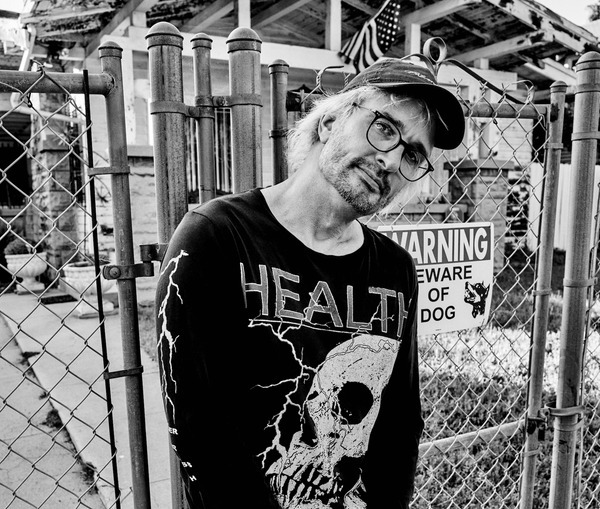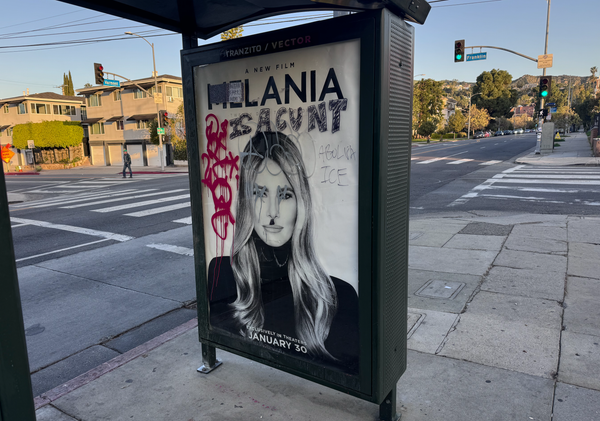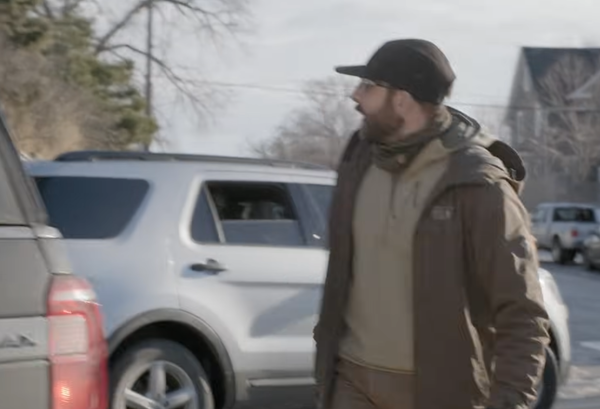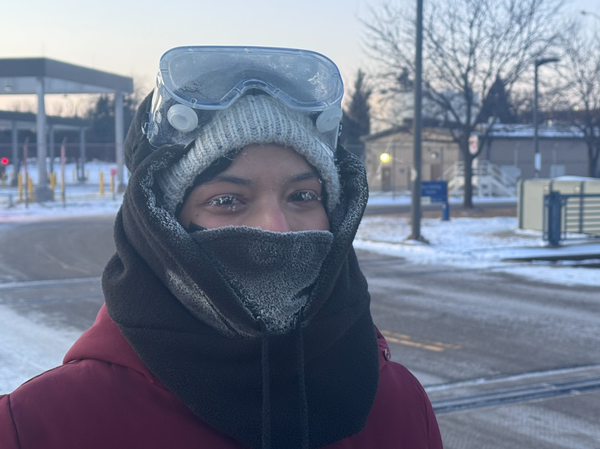"You don't get rich writing science fiction. If you want to get rich, you start a religion"
Some thoughts on Scientology.

Good morning.
Over the weekend, someone on Imgur noted that the New Zealand Church of Scientology was distributing pamphlets called “How to keep yourself & others well”.
Like a lot of Scientology shit, it’s kinda hiding the fact it’s produced by the Church of Scientology.
I’d argue this one went a step further: With its yellow colours and branding, this one was particularly gross as it mimicked the New Zealand Government’s Covid-19 messaging.
Inside was a bunch of generic health information on what to do during a pandemic (including how to wash your hands and use a face mask), but it also contained a QR code that took you to the Scientology website, which of course hooked you up with a whole lot of cultish (sorry, religious) bullshit.

The whole thing made me feel annoyed, so I wanted to point it out here.
And it reminded me of a piece I wrote a few years ago, when a brand new Church of Scientology opened up in Auckland, New Zealand — quite close to where I live.
In it, I detailed my weird history with Scientology.
I’d be curious to hear your thoughts about Scientology, too.
Have you got a Church in your city? Or do you have other cults around you? Let me know in the comments below.
David.
Scientology & Me:
I became a Scientologist about ten years ago when their New Zealand headquarters was a drab, characterless building on the Ellerslie-Panmure Highway.
It was a temporary thing.
I’d joined the church because I was writing an article about it. I wanted to be immersed and was infinitely curious about what it was like inside. And to be honest, it was fairly unremarkable — resembling the inside of any garden-variety religious organisation. There was a lot of carpet, some old furniture, and some of the walls were in need of some new paint. The people were far removed from the artificial smiles, suits and slicked-back hair of the Scientology in America.
This was a down to earth, kiwi affair. Bog standard New Zealanders, getting on with the job. They were a bit frumpy. A woman led me to a small theatre, where I watched a nineties-era instructional video about Scientology. This was a religion out to fix people and their problems — to save them from drug addiction, relationship problems and psychiatry (if it’s one thing you learn very early on, it’s that Scientology really hates psychiatry).
The video was followed by a personality test, which involved answering a lot of questions about my life, and grading them on an intensity scale. Relationships. Family. Happiness. Stress.
The results came back quickly, and I discovered there were lots of things wrong with my personality. My problems had been broken down into figures and graphs. Fortunately, Scientology could help me through a process called “auditing”.
Auditing involved me going into an auditing room, where I sat down at a table. Opposite me was a man in his mid-30s. Sitting on the table between us was an E-meter, a device with a little needle that would flick back and forth when I picked up the two metallic handles attached to the machine. The man told me to start talking about something in my life that had been traumatic. As I did so, the E-meter would read my electrodermal activity. I told the man about how I’d hit and killed a cat on the way to my Year 12 ball.
I would talk, and the auditor would listen. “I saw it run onto the road and then I heard a thump and felt a jolt”. The needle would flick this way and that, gauging my emotional state while I relived those horrible events of 1999. Then I’d tell the story again. “It’s eyes were squished out of its head”. And again. “I felt awful, I think it was still half alive”. And again: “One eye was looking at me. It looked annoyed”.
You tell the story until the auditor tells you are “clear” of the event. The whole idea of auditing, and of Scientology, is to reach a state of “clear”. In everything. As you ascend the ranks, you climb The Bridge to Total Freedom. Eventually you became on OT: An Operating Thetan.
I think at some stage you’re able to levitate.
This process is easy to mock, but I couldn’t help but think it’s essentially just therapy: one human talking to another human who is taking their money. As for the E-meter — well, I suppose it’s a bit like a bastardised lie-detector test.
But as with everything in Scientology, there’s controversy every step of the way. Documentary makers Louis Theroux and Alex Gibney both made incredible films about Scientology, both pointing out all those sensitive stories you tell your auditor are stored and filed. Past members claim they’ve been used by the church to blackmail them when they try and leave.
I wonder if they still have the story about the cat.
Then of course there’s the money. To keep a religion alive, you need plenty of money. It’s been widely reported that LRH himself once said, “You don't get rich writing science fiction. If you want to get rich, you start a religion.”
I joined the church for a short time, and because I paid them a fee of a few hundred dollars, I got a membership card that said I was a Scientologist. It wasn’t particularly fancy. The piece of card wasn’t even laminated. I purchased some reading materials as well - workbooks, and Scientology’s bible, Dianetics.
Every church has a store filled with reading materials and audiobooks - it feels a bit like the colourful material of a Tony Robbins course. All up I think I spent about $300. It wasn’t outlandish, but I admit I’d feel more comfortable if I’d given it to charity.
I’ve been fascinated by Scientology ever since I walked down L Ron Hubbard Way in Los Angeles 10 years ago. It’s the cleanest street in LA, meticulously policed by Scientologists on push bikes, who parade up and down all day long.

It struck me that achieving a clean, shiny street is no easy feat in a city that is this notoriously grubby. A city where Scientology has flourished, adherents like actor Tom Cruise giving it a certain star quality not afforded to many other religions.
I think that street says so much about Scientology. Obviously, it’s named after its founder, science fiction and fantasy writer Lafayette Ron Hubbard (LRH to his fans). He was a passionate, podgy-faced little chap, who holds a Guinness World Record for most audio books published by one man.
His street, Ron L Hubbard Way, was named in 1996 with the blessing of the LA City Council. It got the blessing in part because the Church owned 55% of the sprawling property, and had been there for around 40 years. But while it was entrenched in the community, council voters were torn.
“I believe that L. Ron Hubbard was manipulative and dishonest. He's a cult leader. We don't name streets after cult leaders,” Ruth Galanter told the LA Times at the time.
Richard Alatorre didn’t agree. “The fact of the matter is, this is the leader of this church that has been a long standing member of the community. They are involved in positive work. They have a lot of members.”
The naming of a street involved money, property, power and controversy. It’s the story of Scientology.
As for Scientology here in New Zealand, we have Frank to thank.
Frank Turnbull lived in Christchurch in 1952. His whole world changed when he heard about Scientology. According to the Church, he flew to Philadelphia the following year to attend a Scientology Doctorate course. He met LRH, who awarded Frank the title of “Scientology Bishop of Oceania.” And thus Frank became a Bishop (decades before Bishop Brian Tamaki came along).
Frank returned to New Zealand, and in January of 1955, the first Church of Scientology was formed outside of America. This was a huge, momentous moment for Scientology. This was the first Church of Scientology outside of America! This was the second Church of Scientology on the entire planet!
(You can read The NZ Royal Commission’s 1969 inquiry into Scientology here - it’s fascinating).
From my experience with Scientology in Auckland, it’s far removed from the mania of its life in Los Angeles, where its shiny headquarters and Celebrity Center are loud and glamourous. I often treat Scientology in America like a ride. Instead of visiting Universal Studios, I will take friends along to the Celebrity Centre, asking for a tour. It lasts for a few hours, and is one of the most surreal activities to do in LA. If that doesn’t float your boat, then you can amble down to the Museum of Psychiatry, a kind of Te Papa for Scientology.
During my last visit, I noticed they’ve opened up their own Media Centre. It’s a sprawling complex with giant gates and a guard house. Rumours abound that they plan to start their own TV channel, as it has broadcast facilities.
scientology still operating in the "full noise" zone
— David Farrier (@davidfarrier) 9:10 PM ∙ Jul 11, 2016
But maybe the situation in New Zealand is about to change. Maybe its drab existence down under will be a thing of the past. I wonder what Bishop Frank would make of the church’s new $16 million dollar powerhouse. I wonder if Bishop Brian is jealous.
As for me, I’m still as fascinated by Scientology as I ever was.
I’m not sure it helped me a great deal, but then I was only there for a month. Maybe telling some “traumatic” stories to a stranger did do me some good. Like with therapy, it can be hard to tell. I am not sure how far up the Bridge to Total Freedom I climbed, but I don’t imagine it was very far.
I know there’s documentary evidence Scientology has been involved in some hideous things (please don’t sue me, Scientology, I’m sick of being sued by people). And it seems incredibly wrong that an organisation with so much money and power is tax exempt simply because it’s been labeled a “religion”.
But a small part of me — the part of me that likes to argue with people over bad dinners — feels that compared with other religions, Scientology ain’t all that unique. It has a leader, it has followers, it has a set of beliefs you must follow. Occasionally it does some good. It also does some bad things. You’re either in, or you’re out.
What Scientology can’t do is hide behind the rich history afforded to so many religions. For better or worse, it’s much easier to mock and tease Scientology purely because it’s so new and shiny. Its origins are incredibly recent. There is very little mystery. You can Google loads of images of L Ron Hubbard in his sailors cap. He looks pretty comical, tbh.

This isn’t a religion founded thousands of years ago by some kind of guru. Nope, it was founded in 1954 by Ron. In 1955, Frank brought it to New Zealand. And now it has a fancy new building in Aotearoa.
And as far as I’m concerned, it can go and rot. As can those leaflets.




